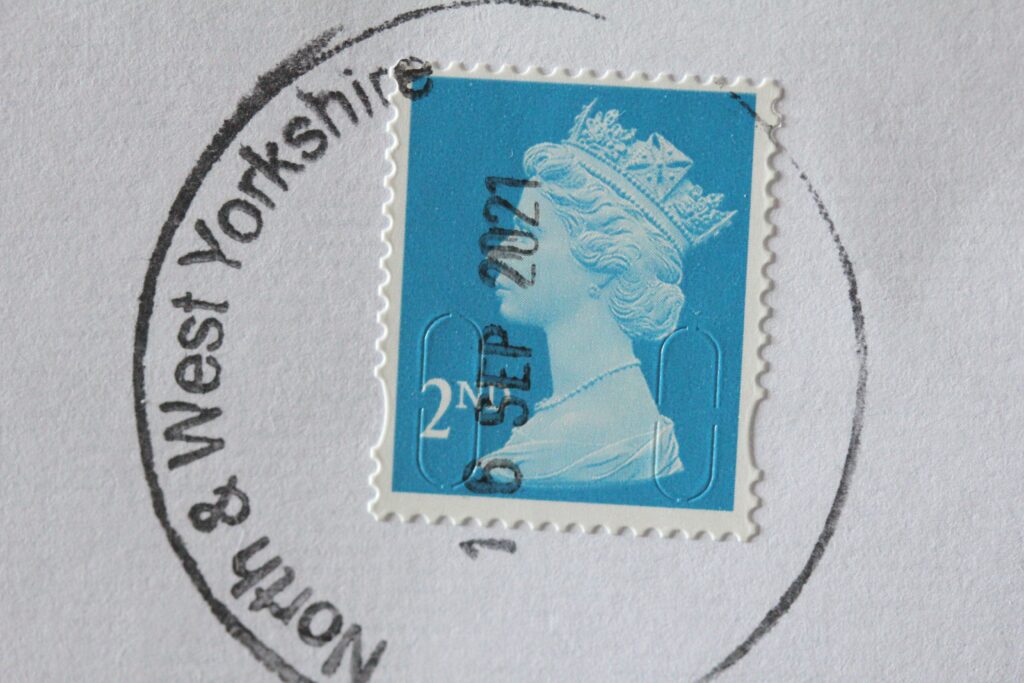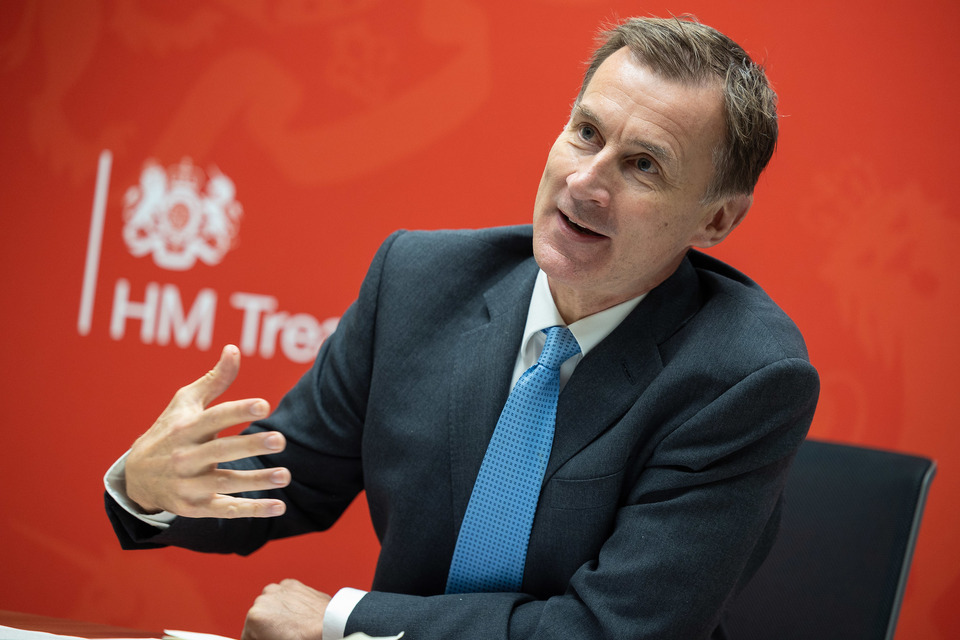Chancellor Jeremy Hunt grabbed plenty of headlines with a pledge to put billions of pounds into public service digital and data transformation. PublicTechnology delves into the detail of his plans.
With more than £4bn committed to digitally-led reform of public services, yesterday’s budget was one of the most tech-centric in living memory.
The full text of the 98-page document contains no fewer than 46 mentions of technology, as well as 42 references to AI and 40 instances of the word digital.
Chancellor Jeremy Hunt’s big-ticket announcement was funding of £3.4bn for NHS “technological and digital transformation”, including supporting deployment of core electronic patient records systems, as well as investment in artificial intelligence and other cutting-edge technology.
“This funding will significantly reduce the 13 million hours of time doctors spend on poor IT, freeing up significant capacity and revolutionising treatment for a range of illnesses such as cancer and strokes”, the budget said. “This will double the investment in technological and digital transformation in the NHS in England and turn the NHS into one of the most digitally enabled, productive healthcare systems in the world.”
Across the rest of the public sector, a further £800m will support digitisation and tech reform – with more than a quarter of this amount dedicated to policing.
Beyond these headline-grabbing figures, here’s the inside track on some of the pledges, plans, and programmes revealed in the red book that you may have missed.

All NHS trusts to get up and running on FDP within three years
The not-uncontroversial project to deliver the NHS’s new Federated Data Platform will be given “an acceleration” in the coming months, according to the budget.
The FDP is intended to provide a central national infrastructure for connecting NHS information, as well as allowing individual trusts to create their own data platform and then connect them to those established by other local NHS entities.
The health service recently awarded the core contract to deliver FDP to big data firm Palantir, in a deal which could be worth £500m and run into the next decade.
But the chancellor’s plans announced yesterday reveal that the intention is to ensure that all NHS bodies can access the platform long before that.
The FDP will “bring together operational and ICS data currently stored on separate systems to every trust in the country by the end of 2026-27, so staff can access the information they need in one safe and secure environment”, the budget states.

Courts service to save on stamps and bring digital to disputes
HM Courts and Tribunals Service will undertake work with the aim of “reforming communications” with those involved in the justice system – and saving money on stamps into the bargain.

The red book says: “The government will modernise communications from HM Courts & Tribunal Service by bringing forward digital reforms and reducing spend on first class post.”
Alongside this modernisation, HMCTS will also “introduce a new online information and guidance tool to support earlier resolution of family disputes”. The aim of the service will be to “help families navigate the range of options available by suggesting suitable interventions” that could prevent disputes from ending in court.
The service will also deploy AI “to reduce the need for manual scanning of paper documents… in the administration of court cases”.
The Crown Prosecution Service, meanwhile, will receive £10m to support the digitisation of the jury bundles of documentary evidence given to jurors and other trial participants in criminal cases. Some £6m has also been committed to “speed up digitisation of key services in prisons”.

‘Drones as first responders’
The £230m in funding set out to enable “police forces… to pilot or roll out cutting-edge technology” will include the use of robots in responding to public phone calls and the deployment of drones to respond to emergencies.
Pilot activities enabled by the money will include further exploration of live facial recognition systems – which are already used by many police forces across the country – as well as less familiar technologies.
This will “automating the triage” of calls made to the national 101 non-emergency number, as well as “deploying drones as first responders”.
“The government will establish a Centre for Police Productivity to support police forces’ use of data and deliver this technology, maximising productivity and the use of AI,” the budget adds.

AI to cut local plan processes by two thirds
The red book reveals plans to trial the implementation of “AI solutions to support planning authorities to streamline their local plan development processes”.
Creating these plans – which constitute long-term strategies for the development of a region or area, and are a requirement for local authorities – currently takes an average of seven years. But government believes that the use of AI could cut this down to just two and a half years.
Councils may wish to use the time saved to work on their vision – which, the budget reveals, must be submitted to government by July of this year – for “how they will improve service performance, utilise data and technology, and reduce wasteful spend”.
“The Department for Levelling Up Housing and Communities will also set up a productivity panel to support the long-term sustainability of the sector, which will discuss the key themes emerging from [these] plans and offer advice to both councils and government that will be considered going forward,” the red book adds.

Crypto asset tax to yield £200m in first three years
Alongside the budget, HM Revenue and Customs yesterday kicked off its consultation process for the planned implementation in the UK of the Cryptoassest Reporting Framework (CARF) – a new global framework intended to tackle offshore tax evasion by those with holdings in digital currencies or other assets.
The intention is to introduce the new regime in 2026 and, during the 2026/27 year, the budget predicts that an extra £35m in tax revenue will be collected. In the two subsequent year this figure will stand at £95m and £75m.

Elsewhere, in the 2025 fiscal year £5m will be spent to “improve and simplify HMRC’s digital services to support Income Tax Self-Assessment taxpayers seeking to pay tax in instalments”. These service upgrades are projected to generate an immediate return of £25m the following year.
The red book also sets out plans to collect and make use of more data from those making use of the tax department’s services, with a view to introducing “metrics to measure progress against tax simplification” ambitions.
“From HMRC’s annual customer survey, the government will track the views of small businesses and individuals on the ease of dealing with tax issues, and the ease of finding information,” the budget says. “The government will also measure how easy taxpayers found it to deal with HMRC from a survey offered after using HMRC’s telephony or digital services.”

Departments’ AI plans to inform spending review
The budget reveals that departments across Whitehall are currently drawing up their own dedicated plans for implementing AI in the coming months and years. These plans are set to inform the creation of a public sector-wide strategy to be published by the Cabinet Office, as well as playing a key role in informing the upcoming three-year spending review, due to take place later this year.
“The Cabinet Office will… set out how the civil service and wider public sector can take advantage of the opportunities of AI through a strategic vision, building on the establishment of the Incubator for AI,” the red book says. “The Cabinet Office is also working with departments to finalise AI adoption plans, which will be ready in time for the spending review, and will continue to expand the application of automation and AI across the range of priority areas.”





Недвижимость в Таиланде – https://lidertut.ru/2024/11/07/Недвижимость-на-Пхукете-Ваш-шанс-на-райскую-жизнь
블로그에서 제공하는 정보들 너무 좋아요 !! 방문하다 먹튀레이더
Elevate Your Wardrobe with Bragle Sweaters – Experience exclusive luxury with Bragle’s luxury sweaters—the perfect fusion of comfort and elegance. Designed from high-quality materials like fine cashmere and wool, each design showcases refined elegance for those with a preference for high-end fashion. From iconic styles to trendy silhouettes, Bragle sweaters move with ease from day to night, keeping you comfortable and effortlessly stylish. Visit **Bragle.com** to explore the full range and experience the ultimate in luxury.
Transform Your Look with Bragle’s Elegant Sweaters – Uncover unparalleled opulence with Bragle’s women’s sweaters—the perfect combination of coziness and style. Designed from high-quality materials like soft merino wool and cashmere, each design exudes timeless class for those with a penchant for upscale clothing. From traditional designs to modern chic, Bragle sweaters transition seamlessly from casual to formal, keeping you cozy and effortlessly stylish. Explore **Bragle.com** to view the full range and embrace the height of elegance.
Top Online Casinos for South African Players
OP
Запрошуємо до нашої студії тату та пірсингу в Житомирі!
Ми створюємо чудові шедеври, що підкреслюють вашу особистість та стиль. В нашій в команді працюють досвідчені майстри з великим досвідом, які використовують лише найсучасніше інструменти та безпечні матеріали.
Завжди мріяли про оригінальне тату або суперовий пірсинг? У нас ви знайдете все для втілення ваших найсміливіших ідей. Подаруйте собі шанс стати особливим з натовпу та висловити вашу особистість через мистецтво татуювання та пірсингу.
Приходьте до нашої студії GOLKA та переконайтеся в якості нашої роботи!
Зроби собі подарунок у вигляді Пірсингу вуха – https://golka.love/
fotografi sicilia – https://socialministryforum.net/2024/12/03/immortalare-momenti-in-sicilia-la-tua-guida-ai-fotografi-professionisti
https://download.beer/wp-content/uploads/2020/12/google-chrome-image-4.jpg
Scam
Pornstar
Porn site
Viagra
Принимать финансовые решения может быть сложно. Но с нашим каталогом финансовых продуктов это стало проще, чем когда-либо!
кэшбэк по карте
Мы собрали все лучшие финансовые продукты в одном месте, чтобы вы могли легко сравнить их и найти те, которые подходят именно вам. Наши экспертные обзоры и рейтинги помогут вам принять обоснованное решение, соответствующее вашим уникальным потребностям.
Независимо от того, ищете ли вы кредит наличными, дебетовую карту или инвестиционный счет, наш каталог финансовых продуктов поможет вам сделать правильный выбор.
https://mrdeeply.tistory.com/103
대전호박나이트
https://kakaotaxi.dasgno.com/page/5
벼룩시장 신문그대로보기 (구인구직, 부동산) 벼룩시장 신문그대로보기 바로가기 그리고 지역별 벼룩시장 종이신문그대로보기 방법 (구인구직, 부동산) 알아볼게요. 교차로신문 같이 벼룩시장은 지역별 일자리, 구인구직, 부동산 등 다양한 정보를 제공해요. 교차로신문그대로보기 바로가기는 아래에서 확인하고, 오늘은 벼룩시장 신문그대로보기 바로가기 그리고 사용법 섹스카지노사이트
Onlinepharmacy on line pharmacy
https://itgunza.com/3457